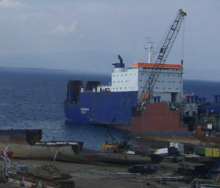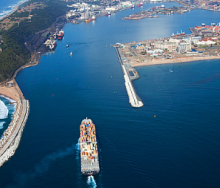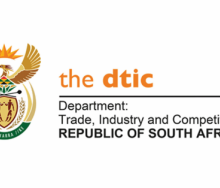The collaborative effort of law enforcement officials within the Trans-Kalahari Corridor (TKC) – comprising Botswana, Namibia, and South Africa – has been reinforced this week at the ongoing 13th Joint Law Enforcement Operation.
Namibia is the host country for this operation, taking place in the coastal Erongo Region.
Joint initiatives are periodically organised to bolster compliance with law enforcement along the corridor.
The primary objectives include enhancing law enforcement visibility, promoting safety and security, and enforcing transport-related laws such as weight limits and rules for hazardous materials.
Additionally, operations serve as platforms for identifying areas of harmonisation and implementing joint training programmes.
Leslie Mpofu, the executive director of the TKC, emphasised the need to modernise by introducing smart corridors and utilising containers embedded with sensors, GPS and Radio Frequency Identification (RFID) chips.
This technology enables precise cargo monitoring by manufacturers, carriers and shippers.
Mpofu outlined the potential benefits of adopting new-generation technologies, including seamless integration of information systems, secure borders, streamlined procedures for authorised traders and eliminating redundant data.
The overarching goal of the Corridor is to address impediments like supply chain constraints that hinder export-led growth.
The work programme of the TKC Management Committee (TKCMC) revolves around enhancing logistics performance in infrastructure, services and procedures.
Coordination among the three countries is crucial for investing in physical infrastructure, designing safety and environmental regulations, and aligning with standards for road safety, transportation of dangerous goods and gas emissions.
Namibia’s Minister of Works and Transport, John Mutorwa, highlighted the importance of transport agreements for seamless movement across borders, emphasising their role in regional integration and support for the African Continental Free Trade Area (AfCFTA).
Mutorwa also acknowledged the significance of efficient ports like Durban and Walvis Bay in the Corridor.
He said, while railway networks are being upgraded to Southern African Development Community (SADC) standards, roads remain pivotal in achieving the AfCFTA and the African Union's Agenda 2063.
Namibia's commitment to upgrading its rail network aligns with the TKC framework, aiming to connect Namibia to Botswana, Zambia, and other SADC countries, he said.
Lieutenant general Joseph Shikongo, the inspector general of the Namibian Police Force, stressed the importance of joint operations in preventing criminal activities, ensuring the movement of only legal goods, people and services along the corridors.
The governments of Botswana, Namibia and South Africa concluded a Memorandum of Understanding on the Development and Management of the Trans Kalahari Corridor in November 2003, in Walvis Bay, Namibia.













